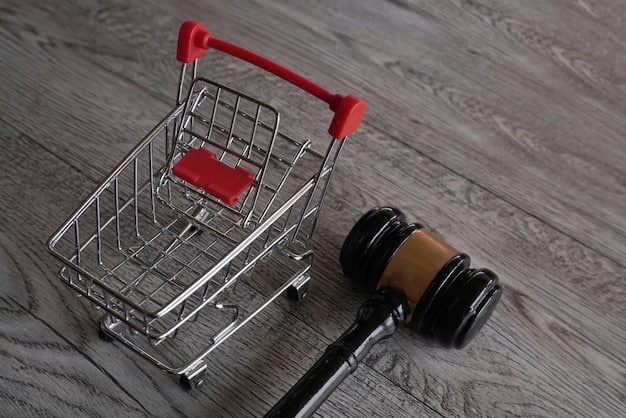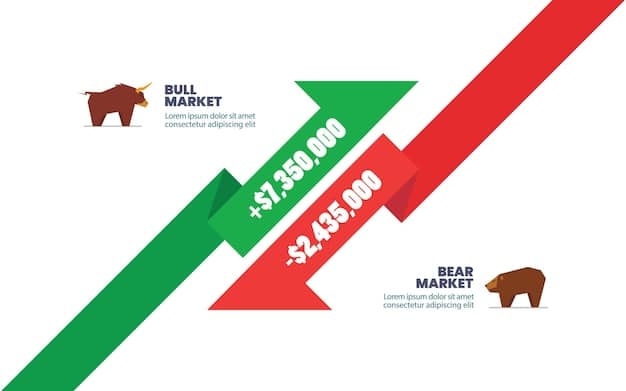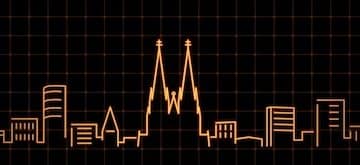Federal Investigation into Retailers: Price Gouging Allegations

A federal investigation has been launched to examine allegations of price gouging by major retailers, focusing on potential violations of consumer protection laws during periods of high demand or emergency.
A federal investigation launched into alleged price gouging by major retailers has sent ripples through the business world, raising questions about ethical pricing practices and consumer protection. This inquiry could have significant implications for both retailers and consumers across the United States.
Understanding Price Gouging
Price gouging is a controversial issue that has gained increased attention in recent years, especially during times of crisis. Before delving into the specifics of the federal investigation, it’s important to understand what exactly constitutes price gouging and why it is considered problematic.
Definition of Price Gouging
Price gouging typically refers to the practice of significantly increasing the prices of goods, services, or commodities during or immediately after a crisis or disaster.
Legal Perspectives on Price Gouging
Many states have laws against price gouging, particularly during declared states of emergency. These laws aim to protect consumers from exploitation when demand is high and supply is limited.

Here are some key points to consider:
- Price gouging laws often focus on essential items such as food, water, fuel, and medicine.
- The definition of what constitutes an “unconscionable” price increase can vary by state.
- Enforcement of price gouging laws can be challenging, requiring evidence of intent and market conditions.
Understanding price gouging is crucial because it sets the stage for evaluating the allegations against major retailers. The investigation will likely focus on whether pricing practices violated existing laws and ethical standards.
The Genesis of the Federal Investigation
The current federal investigation into alleged price gouging by major retailers didn’t emerge in a vacuum. Several factors and events likely contributed to its initiation. Understanding the context helps to appreciate the scope and potential impact of the investigation.
Consumer Complaints and Public Outcry
One of the primary drivers of such investigations is often a surge in consumer complaints. If a significant number of people report unusually high prices for essential goods during a crisis, it can trigger scrutiny from regulatory bodies.
Media Reports and Public Awareness
Investigative journalism and media reports also play a crucial role in highlighting potential instances of price gouging. These reports can raise public awareness and put pressure on authorities to take action.

Key factors that may have contributed include:
- Increased demand for essential goods during specific events.
- Social media amplifying consumer grievances and outrage.
- Political attention to consumer protection issues.
The combination of these factors likely created an environment that necessitated a formal investigation into the pricing practices of major retailers, ensuring that consumer rights are protected and that businesses adhere to ethical standards.
Key Retailers Under Scrutiny
While the specifics of the investigation may be confidential, it’s reasonable to assume that certain major retail chains could be the focus of the inquiry. These are typically large, national or regional retailers who control a significant portion of the market for essential goods.
Identifying Potential Targets
Identifying which retailers might be under scrutiny involves considering factors such as market share, geographical presence, and historical pricing practices.
Retailer A: National Supermarket Chain
One potential target could be a national supermarket chain. These retailers have a broad customer base and supply a wide range of essential goods.
Another possibility is:
- Retailer B: A major pharmacy chain with a national presence.
- Retailer C: A big box store known for competitive pricing and bulk sales.
- Retailer D: An online e-commerce platform that also sells essential goods.
The inclusion of these retailers in the investigation could have far-reaching consequences, not only for the companies themselves but also for consumer trust and the retail landscape as a whole.
Legal and Ethical Implications
The federal investigation into alleged price gouging by major retailers raises significant legal and ethical questions. Understanding these implications is crucial for assessing the potential outcomes and broader impact of the investigation.
Potential Legal Ramifications
If the investigation uncovers evidence of price gouging, retailers could face a range of legal consequences. These may include:
Fines and Penalties
Many price gouging laws carry hefty fines per violation, which can accumulate quickly for large retailers.
Other penalties include:
- Civil Lawsuits: Consumers and state attorneys general can file lawsuits seeking restitution for overcharged prices.
- Reputational damage: Negative publicity from the investigation can harm a retailer’s brand and customer loyalty.
- Regulatory Actions: Federal and state agencies may impose corrective measures to prevent future price gouging.
From an ethical standpoint, price gouging erodes trust between consumers and businesses. It can be seen as exploitative, particularly when it involves essential goods during times of crisis. Retailers have a responsibility to balance profit margins with the needs and well-being of the communities they serve.
Consumer Impact and Protection
The investigation into alleged price gouging directly impacts consumers. It addresses concerns about fair pricing and protection against exploitation during emergencies. Understanding these aspects is essential for consumers to know their rights and how to seek recourse.
How Price Gouging Affects Consumers
Price gouging can have a significant financial impact on consumers, particularly low-income individuals and families who rely on essential goods. Inflated prices can make it difficult or impossible for them to afford necessities during times of crisis.
Consumer Rights and Recourse
Consumers have rights and avenues for recourse when they believe they have been subjected to price gouging.
Key steps consumers can take include:
- Documenting instances of suspected price gouging, including dates, locations, and prices.
- Filing complaints with state attorneys general or consumer protection agencies.
- Joining class-action lawsuits filed against retailers.
The investigation has the potential to reinforce consumer protections and send a message to retailers that unethical pricing practices will not be tolerated, ensuring a fairer marketplace for all.
Possible Outcomes and Future Trends
The federal investigation into alleged price gouging by major retailers could lead to various outcomes. Understanding these potential scenarios can help businesses and consumers prepare for what lies ahead.
Scenarios and Implications
One possible outcome is that the investigation uncovers widespread evidence of price gouging, leading to significant fines, penalties, and corrective actions for the retailers involved.
Future Trends in Pricing Regulation
The investigation could also shape future trends in pricing regulation and consumer protection.
Key trends to watch for include:
- Increased scrutiny of pricing algorithms and dynamic pricing strategies.
- Greater emphasis on transparency in pricing practices.
- Strengthened enforcement of existing price gouging laws.
The investigation creates an opportunity for businesses to reassess their pricing strategies and embrace ethical practices that prioritize consumer trust and long-term sustainability, fostering a more responsible and equitable marketplace.
| Key Point | Brief Description |
|---|---|
| 🔍 Investigation Launch | Federal probe into alleged price gouging by major retailers. |
| ⚖️ Legal Ramifications | Retailers could face fines, lawsuits, and reputational damage. |
| 🛡️ Consumer Protection | Consumers can report price gouging and seek restitution. |
| 📈 Future Trends | Greater scrutiny of pricing, emphasis on transparency. |
Frequently Asked Questions
▼
Price gouging is the practice of raising prices on certain kinds of goods and services to an unfair or exploitative level during a state of emergency.
▼
Although specific names have yet to be confirmed, the investigation likely targets major national supermarket and pharmacy chains.
▼
Legal consequences can include significant fines, civil lawsuits, and reputational damage for the retailers involved in the price gouging.
▼
Consumers can report instances of price gouging to their state’s Attorney General or to local consumer protection agencies.
▼
Price gouging can make it difficult for consumers, especially those with low incomes, to afford essential goods during a disastrous or emergency situation.
Conclusion
The federal investigation into alleged price gouging by major retailers has far-reaching implications for businesses, consumers, and the regulatory landscape. As the investigation unfolds, it is essential to monitor developments and stay informed about consumer rights and ethical business practices.





